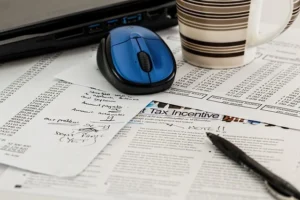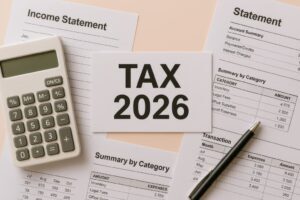Are you wondering how much it will cost to have a tax professional prepare your taxes this year?
Tax preparation fees are all over the map, and if you’re like most people, you’ve probably been hit with a surprise bill at least once.
Real talk: Tax preparation pricing is confusing. And when you’re already stressed about taxes, the last thing you need is sticker shock when the bill arrives.
In this tax prep cost guide, I’ll walk you through:
- Current average tax preparation fees by professional type
- Common pricing models and factors affecting fees
- How to ensure you’re getting a fair price for your tax preparation
- Ways to potentially save on tax preparation costs
- State and regional price differences you should know about
Tax preparation fees vary widely depending on who prepares your return, the complexity of your situation, where you live, and how the fee is structured.
Having worked with thousands of clients as a tax attorney, I’ve seen everything from DIY filing mishaps to complex tax preparations by elite firms. I know what works, what doesn’t, and what you’re actually paying for. Let me guide you through what you need to know before choosing who handles your 2024 tax return.
Understanding Tax Preparation Fees: What You’ll Pay in 2025
When it comes to tax preparation, you generally get what you pay for. The national average cost for professional tax preparation ranges from $220 for a simple return to over $2,900 for more complex returns. But these figures only scratch the surface.
Most people have no idea how professionals determine their tax preparation fees, leading to shock when the final bill arrives. By learning the different pricing strategies tax professionals use, you can better evaluate services and avoid unexpected costs. Tax preparers typically use one of six pricing structures:
- 1. Flat-fee pricing: A single comprehensive fee based on return type (simple, standard, complex)
- 2. Per-form pricing: A set fee for each tax form or schedule required ($220 basic + $192 for Schedule C, etc.)
- 3. Hourly rates: Charges based on the time spent preparing your return ($150-400/hour)
- 4. Minimum fee plus surcharges: A base fee with additional charges for complexity
- 5. Previous year pricing: Charging the same as last year unless complexity changes
- 6. Value-based fees: Pricing based on the perceived value to you
For example, a tax professional using flat-fee pricing might charge $350 for all individual returns regardless of complexity, while one using per-form pricing might charge $220 for a basic return plus $100-200 for each additional schedule you need. Understanding which method your preparer uses directly impacts your final bill.
How much does it cost for someone to do your taxes?
The cost for tax preparation varies, but here’s a calculator that can help provide you with a general idea:
Tax Preparation Fee Calculator
4 Tax Professional Types and Their Average Tax Services Fees
Different types of tax professionals command different fee levels based on their credentials, expertise, and the complexity of work they typically handle. Here’s what you can expect to pay based on who prepares your return:
| Tax Professional Type | Average Fee Range (Simple Return) | Average Fee Range (Complex Return) |
|---|---|---|
| CPA | $220-$300 | $323-$900+ |
| Enrolled Agent | $180-$250 | $250-$2,500 |
| Tax Attorney | $300-$500 | $1,000-$5,000+ |
| Independent Preparer | $89-$200 | $150-$400 |
1. Certified Public Accountants (CPAs)
CPAs undergo rigorous education and testing and must maintain their certification through continuing education. Their fees reflect this expertise. For individual returns, CPAs charge on average:
- Average cost to have taxes prepared: $300 for a simple Form 1040 with standard deduction and state return
- $400 for an itemized Form 1040 with Schedule A plus state return
For business returns, the costs increase quite a bit:
- $1,200 on average for a corporate return (Form 1120)
- Additional fees for other business schedules and forms
CPAs who bill hourly typically charge between $150 and $400+ per hour. Highly experienced CPAs in major cities may charge over $500 per hour. CPAs and tax accountants are good at accounting, but they’re not legal specialists. If you run into any tax problems with the IRS, their help may be limited.
2. Enrolled Agents (EAs)
Enrolled Agents are federally licensed tax specialists with expertise in taxation. Their fees are often slightly lower than CPAs, though there is considerable overlap. EAs typically charge:
- Average cost to have taxes prepared: $100-$400 per hour
- $250-$2,500 for small business returns (depending on complexity)
- Approximately $192 for a Schedule C business form
While EAs know tax forms well, they lack the legal expertise to handle disputes with the IRS, tax court representation, or complex legal tax strategies.
3. Tax Attorneys (Your Best Protection)
Tax attorneys command the highest fees due to their legal expertise. They are the go-to if you want to make sure your taxes are being done by the highest-level expertise possible. They typically handle specialized tax issues rather than routine tax preparation. Tax attorneys charge:
- Flat-Rate Fees: typically starting from $599
- Hourly rates: $200-$550 (elite firms charge $1,000+)
- Tax return preparation fees: $300-$800 for individual returns, $1,000-$3,000 for complex business returns
- Value beyond preparation: Legal protection, dispute resolution, strategy planning
We’re the only tax professionals with attorney-client privilege and legal authority to represent you in all tax matters.
I had a client who came to me after using a chain preparer for years. During our review, I discovered $28,000 in missed deductions from the past three years. We amended his returns and got a substantial refund, far more than my fee. A chain preparer simply doesn’t have the depth of knowledge to spot these opportunities.
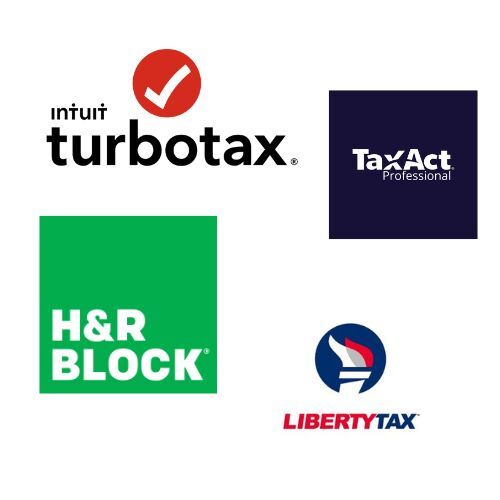
4. Independent and Seasonal Tax Preparers
These are your H&R Blocks, Liberty Taxes, and local preparers. They’re usually cheaper but quality varies wildly. This category includes non-CPA accountants, bookkeepers, and seasonal preparers. They generally offer the most affordable rates. Independent preparers typically charge:
- Starting fees to have taxes prepared: Advertised around $89 (but add-ons push most to $150-$300+)
- Experience levels: Highly variable (some seasonal preparers have just weeks of training)
When things go smoothly, tax accountants can handle basic returns. But if the IRS sends you letters? You’re on your own. They can’t represent you in disputes or legal matters.
Tax Pro Showdown: Who’s Got Your Back?
| Tax Pro Type | Legal Protection | Can Represent in Tax Court | Attorney-Client Privilege |
|---|---|---|---|
| Tax Attorney | ✓ Full legal protection | ✓ Yes, all levels | ✓ Complete |
| CPA | ✗ Limited | ~ Limited capacity | ✗ No |
| Enrolled Agent | ✗ Limited | ~ Limited capacity | ✗ No |
| Chain/Independent | ✗ None | ✗ No | ✗ No |
When the IRS comes for your money, only one professional has your back 100%!
6 Key Factors That Determine Tax Preparation Fees
Several critical factors influence how much your tax preparation will cost, regardless of who prepares it:
1. Complexity of Your Return (The #1 Factor)
This is the primary cost driver. Each additional form or schedule adds to the cost:
- A simple W-2 wage earner with standard deduction: near minimum fee
- Adding Schedule A (itemized deductions): +$100-150
- Adding Schedule C (business income): +$200 on average
- Adding Schedule D (capital gains): +$120 on average
- Adding Schedule D (capital gains): +$120 on average
- Adding Schedule E (rental income): +$150 on average
- Each additional state: +$150
Got crypto? Multiple jobs? Rental properties? Investments? Each one pushes your bill higher. This is where a tax attorney’s expertise becomes invaluable. The more complex your situation, the more opportunities exist for legal tax minimization strategies.
2. Business vs. Individual Returns
- Corporate tax returns (Form 1120): ~$900 on average
- LLC Partnership tax returns (Form 1065): Similar to corporate returns
- Small business owners: $1,500-$5,000 when multiple forms are involved
3. Tax Qualifications & Experience
More experienced tax professionals command higher fees:
- A premium of $100-$300 more for an expert preparer vs. average preparer
- Specialists in certain industries or tax situations charge more
- Credentials (CPA, EA, attorney) generally correlate with higher fees
4. Geographic Location
Tax return preparation fees differ from one state to another. Charges on the Pacific Coast are far higher than in the South, for example. Here are the varying rates for the preparation of an itemized 1040 Form with a Schedule A and state return, according to the National Society of Accountants:
- $333 in New England (CT, ME, MA, NH, RI, VT)
- $290 in Middle Atlantic (NJ, NY, PA)
- $268 in South Atlantic (DE, DC, FL, GA, MD, NC, SC, VA, WV)
- $210 in East South Central (AL, KY, MS, TN)
- $271 in West South Central (AR, LA, OK, TX)
- $249 in East North Central (IL, IN, MI, OH, WI)
- $214 in West North Central (IA, KS, MN, MO, NE, ND, SD)
- $263 in Mountain (AZ, CO, ID, MT, NV, NM, UT, WY)
- $329 in the Pacific (AK, CA, HI, OR, WA)
State tax complexity also plays a role. States with intricate tax codes (like California and New York) often have higher preparation fees because more work is required to ensure compliance with state-specific rules and credits.
Urban areas consistently show higher rates than rural areas, even within the same state. A CPA in downtown San Francisco might charge $500+ for a return that would cost $250 in rural Iowa.
5. Organization of Your Tax Documents
How organized you are affects your final cost:
- Disorganized records require more time to sort and categorize
- Some firms charge an explicit “organization fee” for messy paperwork
- Well-organized documents can potentially lower your fee
6. Special Tax Situations and Additional Services
Some tax issues absolutely require a tax attorney’s skills:
- Offer in Compromise (tax debt settlement): $3,500-$7,000
- Foreign accounts & FBAR filing: Additional $100+ per form
- Tax audit representation: $150-$300/hour or flat fee packages
- Tax planning and consulting: Often billed hourly
- IRS collections defense: Several thousand dollars
- Tax liens and levies: $1,500-$4,500 for resolution
- Unfiled tax returns: $500-$1,000 per year plus resolution services
- Criminal tax investigations: $5,000-$20,000+ (but can save your freedom)
A client of mine needed help with three years of unfiled returns plus an IRS collection issue. While the cost for resolving everything approached $5,000, we were able to reduce her tax debt by over $30,000 through proper filing and negotiation with the IRS. That’s money well spent.
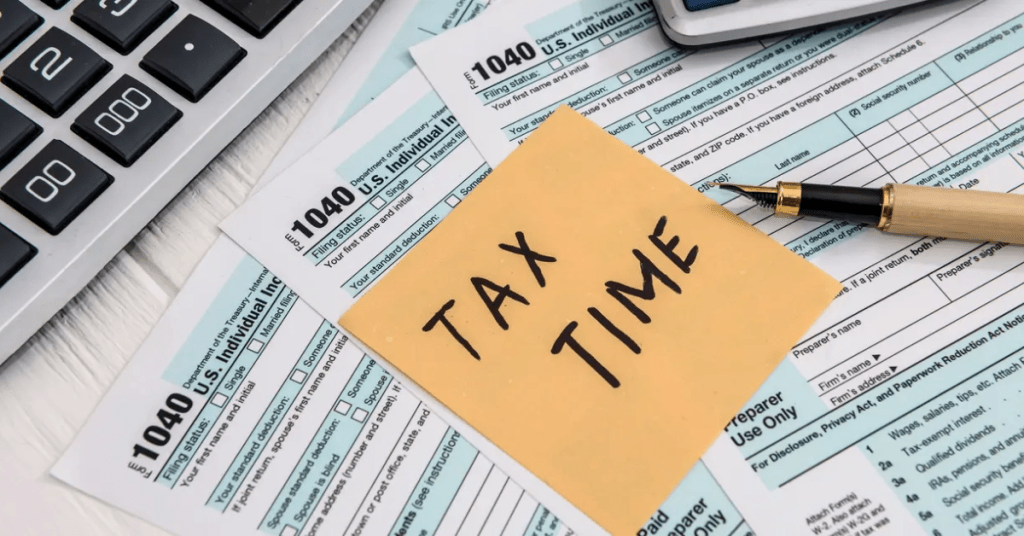
DIY Tax Software vs. Professional Preparation: Cost Comparison
So should you just do it yourself with software? Let’s compare:
Tax Software Limitations
- Can’t provide legal advice – Only follows programmed rules
- Limited defense if audited – You’re on your own with the IRS
- No strategic planning – Just fills in this year’s forms
- No confidentiality protections – No attorney-client privilege
- Can’t identify all opportunities – Only as good as the questions it asks
About half of Americans now use software to file. For the simplest returns, it works. But here’s what those users are missing:
When a Tax Attorney Delivers Real Value
- Complex situations – Business ownership, real estate, investments
- Major life changes – Marriage, divorce, inheritance, business sale
- Previous tax issues – Audits, unfiled returns, tax debt
- Strategic planning needs – Long-term tax minimization
- Legal protection desires – Maximum defense against IRS actions
I recently helped a client who had used TurboTax for years. He’d been reporting his rental property incorrectly and missing depreciation deductions. By properly structuring his real estate activities and amending previous returns, we secured a $17,800 refund – something his software never flagged.
Tax Filing Prices With Tax Software
If you’re concerned about tax filing prices, using commercial tax software is generally much cheaper than hiring a professional:
- Free tier for simple returns (W-2 income, standard deduction)
- Paid packages: $20-$200+ for more complex situations
- State returns: Additional fees ($30-$50 per state)
- Add-on services (human help): Can push total cost higher
Even the most expensive software package typically costs less than most tax accountant rates. For example: a TurboTax desktop package might cost $80 plus state filing, while a tax professional would charge $220+ for a similar return.
Cost vs. Complexity Considerations
The complexity of your taxes should guide your choice:
- Simple returns (W-2 income, standard deduction): Software works well
- Moderate complexity (investments, basic self-employment): Software might be able to handle it
- High complexity (multiple businesses, extensive investments): Professional likely worth it
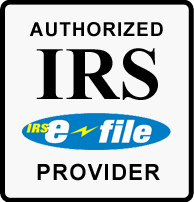
Red Flags: Illegal Tax Prep Warning Signs
The Treasury Department outlines some inappropriate and prohibited pricing models. Here are the basics of these methods:
- Tax filing prices based on your refund size – This is literally illegal
- Promising specific refund amounts before seeing your documents – They’re guessing (or worse)
- Refusing to sign the return as preparer – These “ghost preparers” are avoiding accountability
- No PTIN (Preparer Tax Identification Number) – It’s required by law
- Pressuring you to claim credits you don’t qualify for – Honest mistakes happen, but pushing for fraudulent claims is a crime
Tax Preparation Fees by Form & Situation
1. Offer in Compromise (OIC)
Want to settle your tax debt for less than you owe? You’ll need a tax resolution specialist or attorney. They have the strongest negotiation power with the IRS and can provide legal protection throughout the process. Unlike other professionals, they can address legal issues that may arise and offer attorney-client privilege.
What does it cost to file an Offer in Compromise? Expect to pay $3,500-$4,500 on average, with complex cases running up to $7,000. Most firms charge a flat package rate since these negotiations are extensive and time-consuming.
IRS Forms Involved:
- Form 656 (Offer in Compromise)
- Form 433-A (OIC) for individuals
- Form 433-B (OIC) for businesses
✓ Tax Attorney | ✗ CPA | ✗ Enrolled Agent | ✗ Chain Tax Preparer | ✗ Tax Software
2. Offshore Accounts & FBAR Filing
If you have foreign bank accounts or assets, you’ll need to file special forms like the FBAR (FinCEN Form 114) and possibly Form 8938. Most tax pros charge extra for these – typically around $100 per FBAR filing on top of your regular tax return fee. For voluntary disclosure programs or complex international issues, a tax attorney provides protection through attorney-client privilege, which is crucial for previously unreported accounts. If you’re using amnesty programs for previously unreported accounts, costs can increase substantially.
What does it cost to handle offshore account reporting? Expect to pay around $100 per FBAR filing on top of your regular tax return fee, with voluntary disclosure programs costing $3,000-$10,000 depending on complexity and number of accounts.
IRS Forms Involved:
- FinCEN Form 114 (FBAR)
- Form 8938 (FATCA)
- Form 3520
- Form 3520-A
- Form 5471
- Form 8621
✓ Tax Attorney | ✓ CPA | ✗ Enrolled Agent | ✗ Chain Tax Preparer | ✗ Tax Software
3. Tax Fraud Investigation Defense
Facing an IRS investigation for suspected tax fraud? You need a tax attorney immediately. Only attorneys can represent you in criminal tax matters and provide attorney-client privilege. CPAs and EAs cannot represent clients in criminal investigations or proceedings.
What does tax fraud defense cost? Be prepared for a large retainer (often $5,000-$10,000) and hourly rates of $300-$600. Criminal tax defense cases can easily exceed $10,000 in legal fees if they go to court.
IRS Forms Involved:
- Various investigative forms including Form 8275 (Disclosure Statement)
- Form 8275-R (Regulation Disclosure Statement)
✓ Tax Attorney | ✗ CPA | ✗ Enrolled Agent | ✗ Chain Tax Preparer | ✗ Tax Software
4. Tax Audit Representation
Being audited by the IRS? You’ll need professional representation. For routine audits, a CPA or EA can handle it, but for complex audits with potentially significant liability, a tax attorney provides the highest level of protection and can address any legal issues that may arise.
What does audit representation cost? Expect to pay $150-$300 per hour or flat fees ranging from $1,000-$5,000 depending on audit complexity. Some companies offer “audit defense” add-ons ($50-$100) when filing that cover representation if you’re audited later.
IRS Forms Involved:
- Form 2848 (Power of Attorney)
- Form 4549 (Income Tax Examination Changes)
- Form 886-A (Explanation of Items)
✓ Tax Attorney | ✓ CPA | ✓ Enrolled Agent | ✗ Chain Tax Preparer | ✗ Tax Software
5. Tax Planning & Consulting
Need strategic tax advice beyond just filing? A good tax professional can help you legally minimize future tax liability. CPAs excel at general tax planning, while tax attorneys are essential for planning with significant legal implications like business structuring or large asset transactions.
What does tax planning cost? Services typically run $200-$500 per hour for consultations, strategy sessions, business structure advice, or estimated tax projections, separate from return preparation.
IRS Forms Involved:
- Form 1040-ES (Estimated Tax)
- Form W-4 (Withholding Adjustment)
- Business entity forms
✓ Tax Attorney | ✓ CPA | ✗ Enrolled Agent | ✗ Chain Tax Preparer | ✗ Tax Software
6. IRS Collections Defense (Liens & Levies)
Facing IRS collection actions like liens, wage garnishment, or asset seizure? You need specialized help, particularly from a tax attorney for complex cases or when contesting the underlying tax liability. Tax attorneys provide stronger negotiation power and legal protection when significant assets are at risk.
What does collections defense cost? Tax resolution firms typically charge $3,000-$5,000 to negotiate with the IRS to release levies or prevent asset seizures.
IRS Forms Involved:
- Form 12153 (Request for Collection Due Process)
- Form 9423 (Collection Appeal Request)
- Form 14135 (Application for Certificate of Discharge)
✓ Tax Attorney | ✗ CPA | ✗ Enrolled Agent | ✗ Chain Tax Preparer | ✗ Tax Software
7. Multiple Years of Unfiled Returns
Need to catch up on several years of unfiled returns? For simple catch-up filings, an EA or CPA can handle the work. For situations with potential criminal implications or significant liability, a tax attorney offers the protection of attorney-client privilege during the disclosure process.
What does filing back tax returns cost? Preparers usually charge per year ($300-$600 each), often with surcharges for obtaining old records or transcripts. Three years of unfiled returns might cost $900-$1,800, potentially more if older years are complex due to missing information.
IRS Forms Involved:
- Form 1040 (for relevant years)
- Form 4506-T (Request for Transcript)
✓ Tax Attorney | ✓ CPA | ✓ Enrolled Agent | ✗ Chain Tax Preparer | ✗ Tax Software
8. Cryptocurrency Tax Reporting
Traded Bitcoin or other cryptocurrencies? You’ll need specialized help accurately reporting these transactions. Most tax professionals aren’t familiar with the unique challenges of crypto taxation.
What does crypto tax reporting cost? Most tax preparers charge $100-$500 extra for crypto calculations depending on the number of transactions. Complex situations with hundreds of transactions can cost $1,000+ in additional preparation fees.
IRS Forms Involved:
- Form 8949 (Sales and Dispositions)
- Schedule D (Capital Gains and Losses)
- Schedule 1 (for mining income)
✓ Tax Attorney | ✓ CPA | ✗ Enrolled Agent | ✗ Chain Tax Preparer | ✗ Tax Software
9. Trust and Estate Tax Return Preparation
Managing a trust or estate that requires specialized tax filings? CPAs with estate/trust specialization handle routine filings, while tax attorneys are needed for complex estates with legal considerations or potential disputes.
What do trust and estate returns cost? Expect to pay $800-$1,500 for moderately complex situations. High-value estates with multiple assets can run $3,000-$10,000+ due to detailed asset valuation and legal considerations.
IRS Forms Involved:
- Form 1041 (Trust/Estate Income Tax Return)
- Form 706 (Estate Tax Return)
- Form 709 (Gift Tax Return)
✓ Tax Attorney | ✓ CPA | ✗ Enrolled Agent | ✗ Chain Tax Preparer | ✗ Tax Software
10. Amended Returns
Need to fix a previously filed return? EAs or CPAs can handle straightforward amendments, while tax attorneys are recommended if the amendment involves substantial increases in tax liability or potential fraud issues.
What does amending a tax return cost? Typically $250-$500 for straightforward situations, potentially more if complex issues must be addressed. Some preparers charge 50-75% of their normal preparation fee for amendments.
IRS Forms Involved:
- Form 1040-X (Amended Individual Return)
- Form 1120-X (Amended Corporate Return)
✓ Tax Attorney | ✓ CPA | ✓ Enrolled Agent | ✗ Chain Tax Preparer | ✗ Tax Software
11. Divorce-Related Tax Issues
The tax implications of divorce often requires specialized assistance, especially for high-asset divorces. CPAs with divorce taxation experience handle standard situations, while tax attorneys are essential for complex situations with significant assets or contentious disputes.
What do divorce-related tax services cost? Professional help typically runs $500-$1,500 depending on complexity for determining equitable division of tax assets/liabilities or handling alimony/child support tax issues.
IRS Forms Involved:
- Form 8332 (Release of Claim to Exemption)
- Form 1099-S (for property division)
- Schedule E (for rental property transfers)
✓ Tax Attorney | ✓ CPA | ✗ Enrolled Agent | ✗ Chain Tax Preparer | ✗ Tax Software
12. Innocent Spouse Relief
Need relief from tax liability for your spouse’s actions? Tax attorneys are your best option as these cases often involve complex legal arguments and negotiations with the IRS, and may require appeals or Tax Court representation if initially denied.
What does innocent spouse relief cost? These specialized filings typically cost $2,000-$5,000 due to detailed documentation, legal analysis, and IRS negotiations required.
IRS Form Involved:
- Form 8857 (Request for Innocent Spouse Relief)
✓ Tax Attorney | ✗ CPA | ✗ Enrolled Agent | ✗ Chain Tax Preparer | ✗ Tax Software
13. Employee vs. Independent Contractor Issues
Facing worker classification disputes with the IRS? Tax attorneys are particularly valuable for reclassification disputes as these cases often involve significant employment tax liability and potential penalties that benefit from legal representation.
What does resolving worker classification issues cost? Professional assistance typically runs $1,500-$4,000 depending on the number of workers involved and complexity of your situation.
IRS Forms Involved:
- Form SS-8 (Determination of Worker Status)
- Form 8919 (Uncollected Social Security and Medicare Tax)
✓ Tax Attorney | ✗ CPA | ✗ Enrolled Agent | ✗ Chain Tax Preparer | ✗ Tax Software
14. Penalty Abatement Requests
Want the IRS to waive penalties? EAs or CPAs can handle straightforward first-time penalty abatement, while tax attorneys are needed for complex cases involving multiple periods or substantial penalties requiring legal arguments.
What does penalty abatement cost? Professional assistance typically runs $500-$1,500 depending on the number of tax periods involved and complexity of your situation.
IRS Forms Involved:
- Form 843 (Claim for Refund and Request for Abatement)
- Penalty abatement request letters
✓ Tax Attorney | ✓ CPA | ✓ Enrolled Agent | ✗ Chain Tax Preparer | ✗ Tax Software
15. IRS Identity Theft Resolution
Had someone file a fraudulent return using your information? EAs or CPAs can handle standard identity theft cases, while tax attorneys are necessary if the identity theft has created significant complications or if criminal charges are involved.
What does resolving tax identity theft cost? Professional assistance typically runs $1,000-$2,500 depending on complexity and how many tax years are affected.
IRS Forms Involved:
- Form 14039 (Identity Theft Affidavit)
- Form 14157 (Preparer Complaint)
✓ Tax Attorney | ✓ CPA | ✓ Enrolled Agent | ✗ Chain Tax Preparer | ✗ Tax Software
16. International Tax Compliance (Beyond FBAR)
Live abroad or have complex international tax situations? CPAs with international tax specialization can handle standard compliance, while tax attorneys are needed for complex international structures or compliance issues that require legal protection.
What does international tax compliance cost? Expect to pay $2,000-$5,000+ for comprehensive international tax compliance, depending on which countries are involved and the complexity of your situation.
IRS Forms Involved:
- Form 8833 (Treaty Position)
- Form 8854 (Expatriation Statement)
- Form 8858 (Foreign Disregarded Entities)
- Form 8865 (Foreign Partnerships)
✓ Tax Attorney | ✓ CPA | ✗ Enrolled Agent | ✗ Chain Tax Preparer | ✗ Tax Software
Recent Trends in Tax Preparation Fees
Tax preparation fees have steadily increased over time. The average fee for an itemized 1040 with Schedule A rose from $273 in 2014 to $323 in 2021, with another $35 average increase between 2021-2023.
Tax law changes drive fee fluctuations. The 2017 Tax Cuts and Jobs Act simplified some aspects but added new complexities like the qualified business income deduction. Pandemic-related credits created additional work during 2020-2022.
Technology has helped offset some costs. Better software, document scanning capabilities, and remote meetings have improved efficiency. Meanwhile, DIY tax software has pressured professionals to focus on complex returns and advisory services where they provide more value. The IRS Direct File system, piloted in 2024, could significantly impact the market if expanded nationwide.
Frequently Asked Questions Around Tax Prep Costs
How much does tax preparation cost for an LLC?
For a single-member LLC (Schedule C), expect $300-$600 total. For LLCs filing as S-corps or partnerships, you’re looking at $600-$2,500 depending on complexity. The nationwide average is about $1,000 for LLC tax preparation. However, with an LLC, the real value is in strategic entity structuring and tax planning.
Is it worth paying for a tax attorney for simple returns?
If you have a truly simple return (single W-2, standard deduction), a tax attorney’s expertise might be overkill for just the preparation itself. However, even with simple returns, a consultation with a tax attorney can identify planning opportunities for future years that pay for themselves many times over.
For anything beyond the basics – business income, multiple properties, investments, potential audit risks – a tax attorney’s value quickly becomes apparent. Think of it as insurance and opportunity identification rolled into one.
Can I deduct tax preparation fees anymore?
Unfortunately, individual taxpayers can no longer deduct tax prep fees (See Tax Cuts and Jobs Act through 2025). But businesses and self-employed folks can still deduct them as a business expense on Schedule C. So if you’re self-employed, that $300 prep fee might effectively cost you more like $225 after tax savings.
What’s the cost difference between filing back taxes vs. current year taxes?
Filing back taxes typically costs 20-50% more than current-year returns due to the additional research and potential reconstruction of records required. Many tax professionals charge their standard rate plus a premium for prior-year returns. For example, if a current tax return costs $300, a prior-year return might cost $400-$450. When filing multiple years of back taxes, some professionals offer package deals that reduce the per-return cost.
Ready to Get the Tax Protection You Deserve At The Right Price?
The right tax professional gives you more than just completed forms, they give you confidence and protection.
At Silver Tax Group, our team of tax attorneys combines deep legal knowledge with tax expertise to deliver solutions beyond what traditional preparers can offer.
Got questions? Want a free tax pricing consultation? Contact us today. We’ll help you understand your options and how a tax attorney can potentially save you thousands while keeping the IRS off your back!




